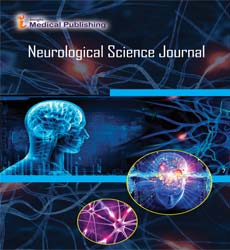Impulse control disorders and other hyperdopaminergic behavioral disorders in Parkinson's disease.
Abstract
Impulse control disorders (ICDs) mostly consist in pathological gambling, hyper sexuality, compulsive eating, and excessive buying. ICDs and other related behaviors, such as punding and dopamine dysregulation syndrome (DDS), are still under recognized nonmotor complications in Parkinson's disease (PD) even though recent studies suggest it could affect 25% of PD patients, with a negative impact on the quality of life (QoL) of both patients and caregivers.All these impulse control behaviors (ICBs) are a range of behaviors’ linked by their reward-based, repetitive natures They can be precipitated by dopamine replacement therapy (DRT) even if other risk factors have been reported : individual’s predisposition (endophenotype and genetic susceptibility) and PD pathology as well. The main risk factors for ICBs are the use of dopamine agonists (DAs), male gender, young age, depression, smoking, drug abuse, family history of ICBs, Parkin mutation and single nucleotide polymorphism in D1, D2, and D3 dopamine receptors as well. The nigrostriatal, mesocortical, and mesolimbic dopaminergic pathways play a crucial role in the pathogenesis of PD-ICBs as especially evidenced by functional imaging studies. The greater tonic release of dopamine creates a state of relative dopamine deficit and reduced reward sensation and impulsive behaviors. Questionnaire for impulsivecompulsive disorders in PD is the most widely adopted screening tool for the detection of PD-ICBs. Based on these data, a range of pharmacological and non-pharmacological management strategies have been tested in PD-ICBs, with varying success. The role of deep brain stimulation (DBS) and apomorphine in the treatment of ICBs is still uncertain.
Open Access Journals
- Aquaculture & Veterinary Science
- Chemistry & Chemical Sciences
- Clinical Sciences
- Engineering
- General Science
- Genetics & Molecular Biology
- Health Care & Nursing
- Immunology & Microbiology
- Materials Science
- Mathematics & Physics
- Medical Sciences
- Neurology & Psychiatry
- Oncology & Cancer Science
- Pharmaceutical Sciences
